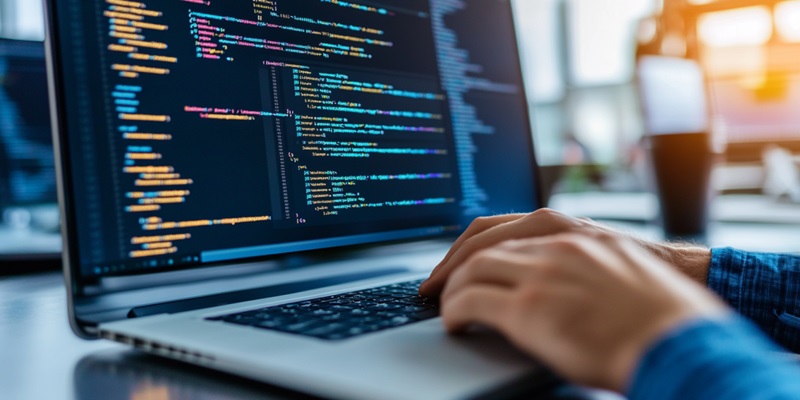AI is playing a transformative role across industries, and while some fear that AI might lead to a dystopian takeover, like Skynet, there’s still plenty of room for innovation and efficiency gains. That’s why companies are investing heavily in building AI-driven cloud solutions to help teams gain better control over their infrastructure and automation processes.
The AI Landscape in DevOps
When thinking about AI, the first things that come to mind might be image generation or content creation using tools like Stable Diffusion, DALL-E 2, and Midjourney, which have made it possible to turn text prompts into stunning visuals. But AI’s potential extends far beyond these creative applications into the technical realm, particularly in DevOps.
Imagine if the tools you use every day in DevOps—like Kubernetes, Open Policy Agent, or Argo CD—could be transformed into human-like assistants. Companies are exploring this kind of innovation, using AI to create human-like representations of these tools. Beyond the novelty of generating images or videos, AI’s true power lies in its ability to parse large amounts of text-based data. It can translate that understanding to generate code, then apply that knowledge to diagnosing issues and even automating infrastructure management.
Automating Code Generation with AIaC
Code generation is one of the most significant ways AI is making an impact in DevOps. A great example is GitHub Copilot, which went from novel to widely adopted even faster than its creators predicted. This is also why competitors like AWS are investing significant R&D hours producing and leveling up competing tools like Amazon Q.
DevOps has been built upon the principle of transitioning everything infrastructure-related to code, known as Infrastructure as Code (IaC). This includes deployment pipelines, monitoring, and repositories—anything that is built upon configurations can be represented in code. This is where AI tools like ChatGPT and AIaC come into play.
AIaC, an open-source command-line interface tool, enables developers to generate IaC templates, shell scripts, and more, directly from the terminal using natural language prompts. This eliminates the need to manually write and review code, making the process faster and less error-prone. For example, when creating a Dockerfile for a Node.js application with security best practices in mind, simply describing the requirements in natural language allows AIaC to generate a secure Dockerfile.
Diagnosing and Resolving Kubernetes Issues with K8sGPT
While generating code is a powerful AI use, diagnosing and resolving issues in complex systems like Kubernetes can be even more valuable. This is where K8sGPT, a recent entry in the Cloud Native Computing Foundation sandbox, comes in. Developed by Alex Jones, a longstanding contributor and advocate in the CNCF community, K8sGPT is an open-source tool that uses AI to analyze and diagnose issues within Kubernetes clusters.
Running K8sGPT is as simple as issuing a command from the terminal. The tool connects to the Kubernetes cluster, identifies problems, and uses AI to provide human-readable explanations and potential fixes. For example, if a pod is stuck in a pending state, K8sGPT can analyze the situation and suggest corrective actions, such as modifying an affinity selector or adjusting resource limits.
The Future of AI in DevOps
The use of AI in DevOps is still in its early stages, but it’s quickly gaining momentum with the introduction of new open-source and commercial services. The rapid pace of innovation suggests that AI will soon be embedded in most DevOps tools. From automated code generation with AIaC to advanced diagnostics with K8sGPT, the possibilities seem endless.
Organizations such as Firefly are not just observing this revolution—they’re actively contributing to it. By integrating AI into DevOps workflows, teams can work smarter, not harder. Whether through open-source projects like AIaC or adopting AI-driven diagnostics in Kubernetes, companies are helping to pave a future where AI is an indispensable part of the DevOps toolkit.
As these tools continue to evolve, addressing security and privacy concerns is crucial. GenAI tools are third-party tools, and ensuring that sensitive data isn’t leaked during interactions with AI models is critical, particularly when using free or experimental versions of AI tools.
Bringing It All Together
Artificial Intelligence is revolutionizing various sectors, and while some people worry that AI could lead to a dystopian scenario reminiscent of Skynet from "Terminator," there’s considerable opportunity for innovation and efficiency improvements. Companies are heavily investing in developing AI-driven cloud solutions to empower teams with enhanced control over their infrastructure and automation processes. This investment reflects the growing confidence in AI’s ability to optimize business operations, streamline workflows, and improve decision-making.
For instance, in healthcare, AI tools are augmenting diagnostic accuracy and predicting patient outcomes more reliably. In finance, AI algorithms detect fraud faster and ensure compliance more effectively. In retail, personalized shopping experiences driven by AI are considerably boosting customer satisfaction and sales. As these examples illustrate, AI’s potential benefits far outweigh the fears associated with its misuse or potential threats. Instead of focusing on a grim, speculative future, the emphasis should be on harnessing AI’s robust capabilities to drive progress across industries. Through responsible and innovative applications, AI can indeed become a cornerstone of modern business solutions.

